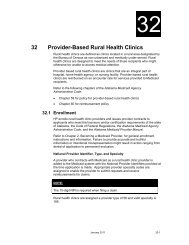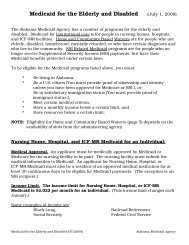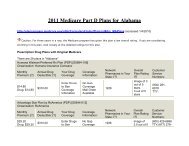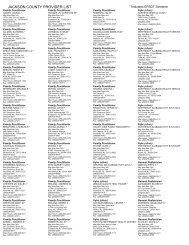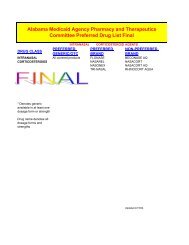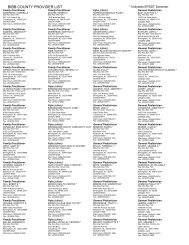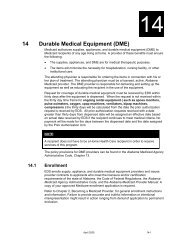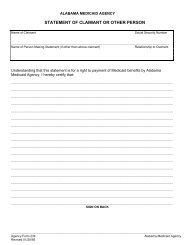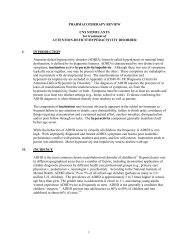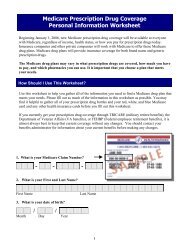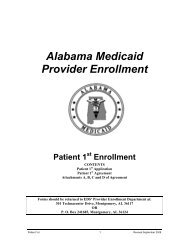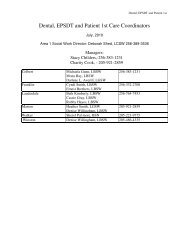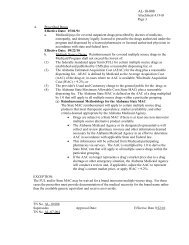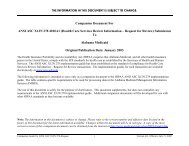Appendix A Well Child Check-Up (EPSDT)
Appendix A Well Child Check-Up (EPSDT)
Appendix A Well Child Check-Up (EPSDT)
You also want an ePaper? Increase the reach of your titles
YUMPU automatically turns print PDFs into web optimized ePapers that Google loves.
<strong>Well</strong> <strong>Child</strong> <strong>Check</strong>-<strong>Up</strong><br />
Hearing Testing/Screenings<br />
Hearing screenings are available either as a result of an <strong>EPSDT</strong> referral or as a<br />
result of a request/need by the recipient. A subjective screening for hearing<br />
problems must be performed on children from birth through age four by history<br />
and observation. Gross examination should be documented as grossly normal or<br />
abnormal. Objective testing begins at age five. Hearing screenings must be<br />
performed through the use of a pure tone audiometer at 500 and 4,000 Hz at 25<br />
decibels for both ears. If a child fails to respond at either frequency in either ear,<br />
a complete audiogram must be done. Objective testing must be referred out if not<br />
performed by the screening provider.<br />
If a child is uncooperative, do a subjective assessment. The reason(s) for not<br />
being able to complete the test must be documented in the medical record.<br />
Proceed with billing the hearing screening on the same date of service as the<br />
initial or periodic screening. The child should be rescheduled for an appointment<br />
to complete the hearing screening. Be sure to complete the hearing screening<br />
within 30-45 days from the original screening date.<br />
If a suspected hearing problem manifests itself, regardless of whether such<br />
services coincide with the periodicity schedule, an interperiodic screening should<br />
be scheduled with the child's physician so the history and problem-focused<br />
physical exam, can be obtained and an <strong>EPSDT</strong> referral issued to the appropriate<br />
specialist or consultant.<br />
Trained office staff may perform a hearing screening if successfully trained. A<br />
staff member must meet the following criteria to be considered trained.<br />
• Employee observes a hearing screening being performed on a minimum of<br />
three patients by a skilled/trained employee<br />
• Employee verbalizes an understanding of the steps required to perform a<br />
hearing screening<br />
• Employee performs a hearing screening under supervision on a minimum of<br />
three patients successfully.<br />
Providers must use an “EP” modifier to designate all services related to <strong>EPSDT</strong><br />
well-child check-ups, including routine vision and hearing screenings. Post<br />
payment reviews are performed to determine appropriate utilization of services.<br />
Dental Services<br />
Dental care is limited to Medicaid-eligible individuals who are eligible for<br />
treatment under the <strong>EPSDT</strong> Program. Dental screenings must be performed on<br />
children from birth through age two by observation/inspection and history.<br />
Beginning with age one, recipients must be either under the care of a dentist or<br />
referred to a dentist for dental care.<br />
A-14 January 2011



